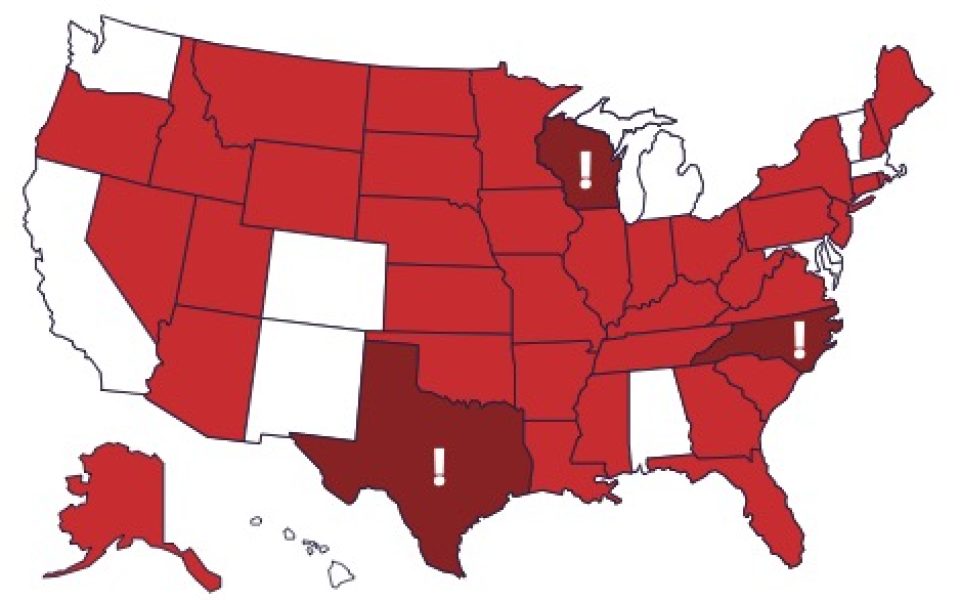A year-end report released last week by States United Democracy Center, Protect Democracy and Law Forward shows that representative democracy, a foundation of our republic, is under attack in key swing states, including North Carolina, as the 2024 election approaches.
The report, titled “A Democracy Crisis in the Making,” documents new election legislation nationwide — 62 new election laws passed since they began tracking after the 2020 Election — with particular emphasis on Texas, Wisconsin and North Carolina, which was labeled the most troublesome.
“In North Carolina,” the report reads, “a legislative supermajority has engineered a host of changes in election oversight that could open the door to partisan interference, confusion at the polls, gridlock during the certification process, or doubt about the results, in addition to disinformation at each of those steps.”
NC checked four of the five boxes measuring the extent of new laws to subvert democracy in an election: “Usurping Control,” “Seizing Responsibility,” “Creating Burdens” and “Imposing Penalties.”
“North Carolina’s General Assembly gave itself significant control over election administration by substantially changing the makeup of election boards,” the report reads. “Overriding a gubernatorial veto, the General Assembly passed SB749, Session Law 2023-139, which established new state and county level elections boards appointed entirely by the General Assembly.”
This was enabled, the report noted, after Rep. Tricia Cotham switched party affiliation to give Republicans a veto-proof supermajority in the House.
The report continues: “New administrative burdens on North Carolina’s elections officials in next year’s elections will also be substantial, thanks to the enactment of SB747, Session Law 2023-140, after an override of the governor’s veto. This law tasks elections officers with, for example, logging the time of entry and signature of all adults entering voting locations, including those assisting elderly or disabled voters; logging and reporting the types of identification used by both in-person and mail voters; reporting segregated absentee and early voting tallies throughout the early voting period; and expanded voter list maintenance efforts. This new law also makes same-day registration more cumbersome and subject to post-election verification procedures that could give rise to disputed vote tallies, and the law extends the period for absentee vote challenges through five days post-election.”
The report also flagged the advent of partisan “observers,” allowed for the first time in NC elections in 2024.
“These observers, appointed by county political party chairs, may take notes, including about individual voters; listen in on conversations between voters and election administrators; obtain lists from election officials at least three times per day of who has voted; move freely about the voting location; and take photos of voting locations before they open and after they close.”
Bemoaning the new election laws in NC, the report concludes, “their cumulative effect may inject uncertainty and opportunities for dis- and misinformation into the election cycle.”
Join the First Amendment Society, a membership that goes directly to funding TCB‘s newsroom.
We believe that reporting can save the world.
The TCB First Amendment Society recognizes the vital role of a free, unfettered press with a bundling of local experiences designed to build community, and unique engagements with our newsroom that will help you understand, and shape, local journalism’s critical role in uplifting the people in our cities.
All revenue goes directly into the newsroom as reporters’ salaries and freelance commissions.


Leave a Reply